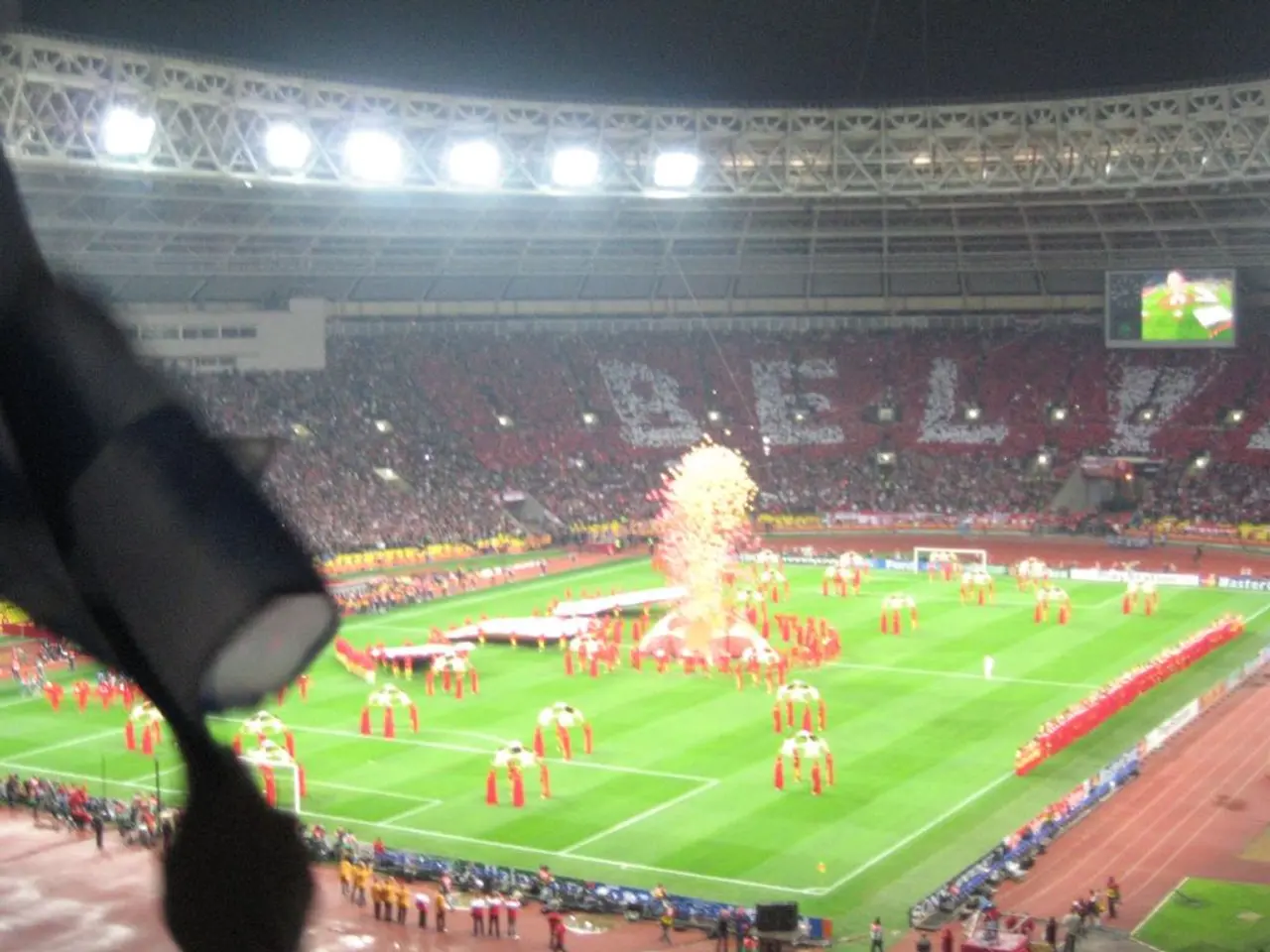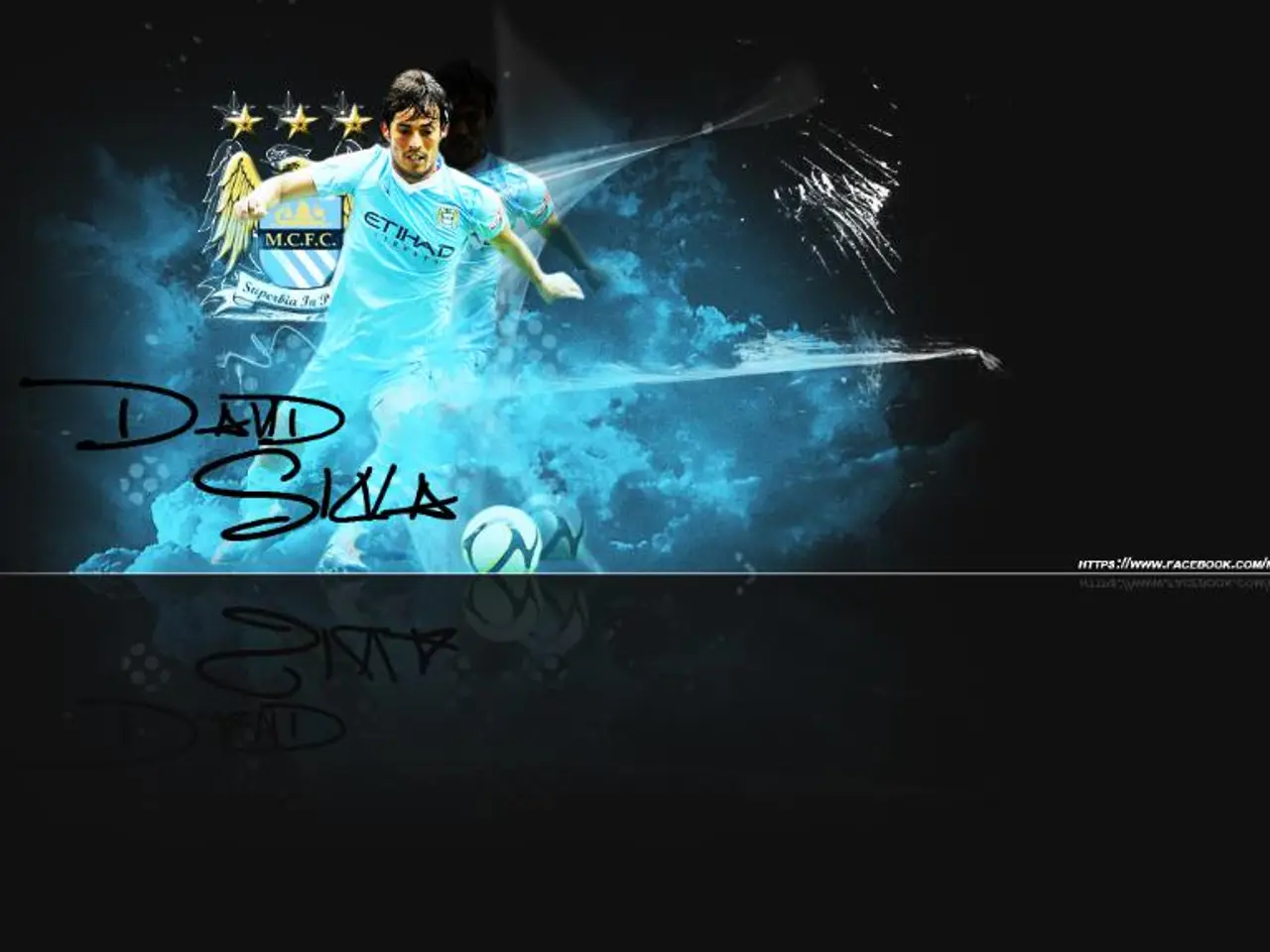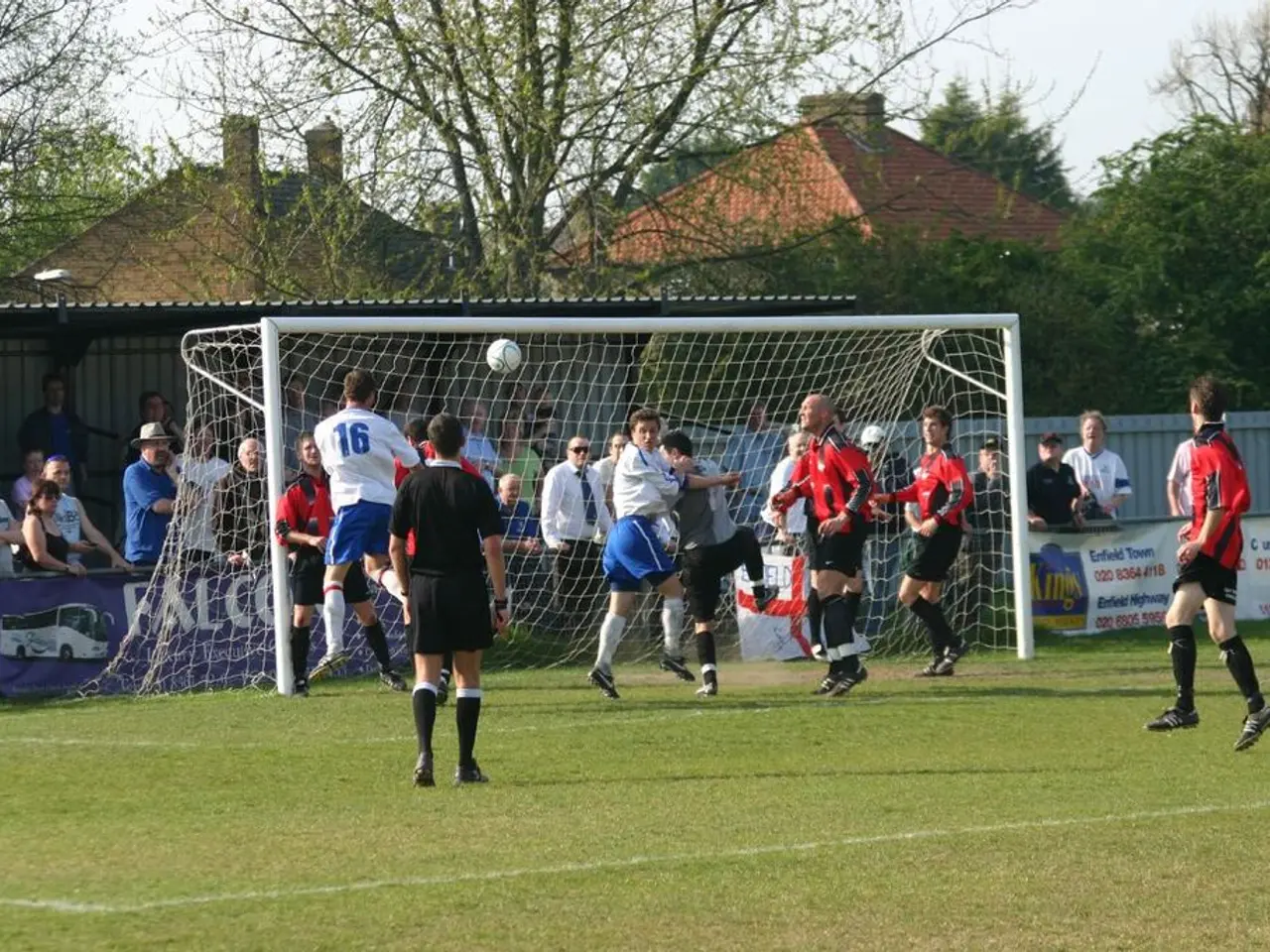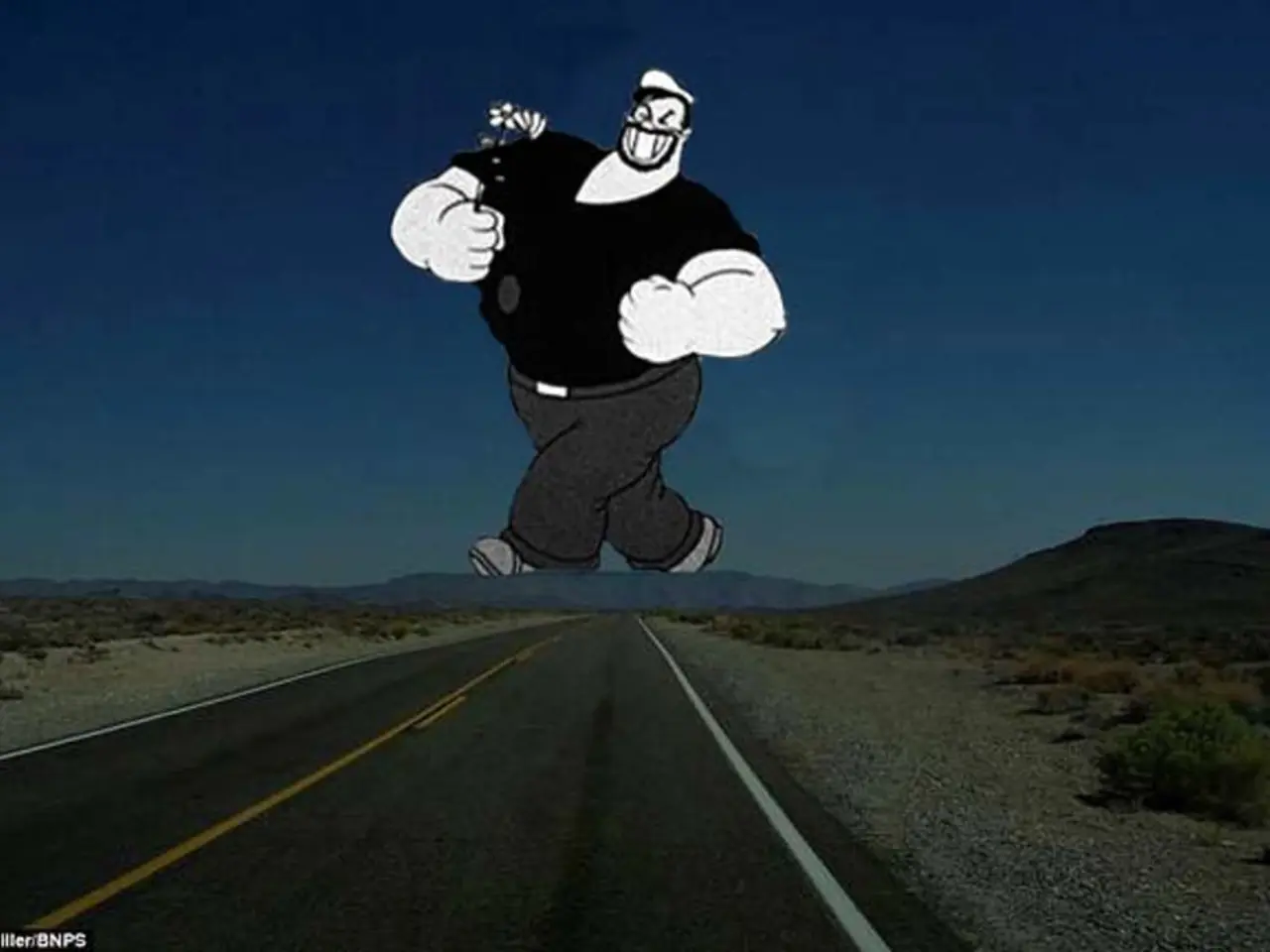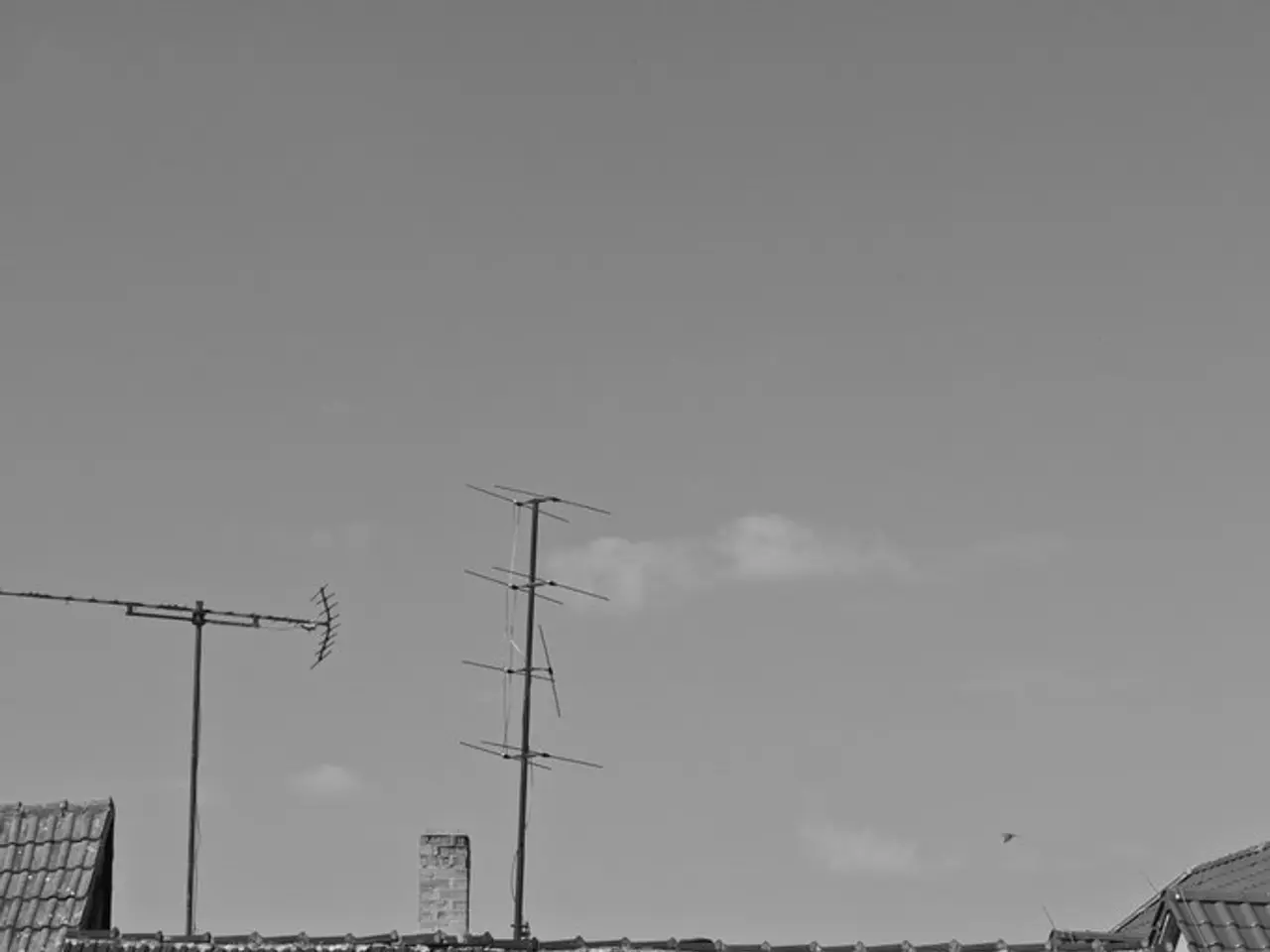Global Viewing Revealed Our Lead Amidst Challenges
The lively studio of "Komsomolskaya Pravda" is buzzing at the St. Petersburg International Economic Forum, happening since June 18. We've invited the most prominent attendees of the annual business jamboree here. One of the first guests was Russian entrepreneur Boris Rotenberg, who shared his insights on our nation's technological supremacy during a chat with Angelica Kiryan**.
- Boris, every second session, every panel here is about Russia's technological independence. What does being independent in 2025 mean to you personally, and what is required to make that happen?
- By backing technology that moves our Russia forward. Without technology, there'll be no progress. We're doing just that, but first, I'd like to give a shout-out to "Komsomolskaya Pravda". I've been reading this powerful paper since my pioneer days... And I want to give you props for the award you received this year. "Komsomolskaya Pravda" is, in my opinion, the top newspaper in Russia.
- We're indeed more than just a newspaper now, a multimedia holding with websites, radio, and social media networks. So, kudos to 100 years of success!
- Exactly. Always truthful, always real, always bold.
- Thanks for that. Over the past three years, Russia's been under sanctions and focusing on ties with the East. Could you name the countries you consider strategically essential today, and can motorsport serve as a bridge for better international relations?
Truth be told, we've had strong collaborations with the East in the past, during the days of "Formula 1" with pilots Sirotkin and Petrov. These races took place in Bahrain and Abu Dhabi, UAE, which have always shown progressive attitudes towards motorsport. The president of the international federation even hails from the UAE. Our collaborations with them remain ongoing. Today, we're working very closely with China and India. There are many areas in motorsport development and car-building where we learn from them and leverage their knowledge to build our own cars. We've signed contracts for collaboration. Currently, the Asian series is underway, and our guys competed in this year's race, striving for top spots. Unfortunately, due to political issues, we failed to secure the win. In Dubai, we raced with Mercedes, vying for the GT-3 category. What did they do to us? They increased the weight of all Mercedes, leading to our 4th place. It wasn't about Mercedes, but about us not winning the championship.
- Does all this turmoil make our sports stronger?
- Absolutely. We still managed to make an impact, and the world recognized our racing prowess despite the obstacles. For the next race, we headed to Abu Dhabi, where we led for four hours, only to have both fuel pumps fail due to electronic issues, pushing us to 11th place. Nevertheless, we finished the race. These experiences only make us stronger and enable us to demonstrate that motorsport in Russia is alive, has always been, and will continue to be.
Bolstered by your efforts, Formula-4 races have returned to Russia, with a winter cup held in December and the Russian Championship starting up in Sochi in May, with the second stage happening this weekend. How did you manage to pull this off, and what's the deal with the initial results and next steps?
I'm damn proud to say I brought Formula-4 back to Russia. Before, we hosted Formula-4 but it was based with the Finnish team Koiranen. Our Russian pilots would travel there to compete, and there were 10 additional cars for international pilots. But what we've got going right now in Russia is on a whole other level in terms of event organization.
Firstly, the races are taking place on Russian tracks. The Igora Drive in Sochi was designed for Formula-1, albeit shortened to half its length - 2.3 kilometers - it's perfect for Formula-4, with the pilots delivering impressive results. The atmosphere of Formula-1 remains in Sochi, making it the first Russian track to host such an event. Built by Hermann Tilke, the architect behind many prestigious circuits around the world, the track in Grozny is being reconstructed to accommodate Formula-4 competitions, keeping the series thriving. There are also tracks in Smolensk, Kazan, and many others where pilots develop their skills. And the most heartening part is that the SMP Racing program, established in 2012, nurtures new pilots, offering free training from scratch.
- This is all happening in Russia? Who'd have thought it possible nowadays?
Yes, our "Formula-4" races here in Russia are actually cheaper than traveling abroad for the same Formula-4 competitions. Our Russian talents like Kostov, Severukhin, and Shevertalov, who've won titles in Europe, are back participating in our "Formula-4" championship, facing stiff competition from young drivers who started their careers in karting. For example, Stepankin-Kim recently bagged a podium finish, coming in second, with Severukhin first, Stepankin-Kim, and Shevertalov following in the footsteps of world champions.
- Let's discuss 'Phygital'. It seems promising. To clarify, it's a hybrid format that combines real motorsport with a virtual one. Last year, the first international 'Phygital' race was held in Sochi, Russia, as part of the global 'Games of the Future' championship. What are the prospects for this format?
- If we set our minds to something and want to make it happen, we do. Dmitry Nikolaevich Chernyshenko informed me of the need to create a 'Phygital' event, specifically in motorsports, and I managed to fetch 16 cars from Finland for the event, despite the ongoing sanctions. We hosted 14 nations in the 'Phygital' race, including Americans, Spaniards, Germans, and even an "F1" pilot. Our team triumphed, leaving Dmitry Nikolaevich in awe of our accomplishment.
- Sports, right? They're unrelated to politics?
- Exactly. Sports and culture are beyond politics. People want to collaborate with us, come to us, and they do. This leads to friendship among all nations.
- What about eSports? I heard there was an eSports zone at the "Igor Drive" stages, organized by SMP.
The thing is, they're digital here, too.That is, the same pilots who raced in "Formula-4" shifted to simulators, and those who excelled received additional rewards. By the end of the season, there'll be seven races on different digital tracks that we've created on our simulators. As for eSports, last year Sasha Smolyar won the 24 Hours of Le Mans, the most prestigious race worldwide. We have many simulators where disabled individuals come to work and participate in competitions. We also organize events for veterans returning from the Special Military Operation (SVO), and they find it engaging. I have an idea that we might implement someday: creating a steering wheel that can be transferred from a simulator to a regular car, allowing people with disabilities to drive on our country's tracks.
Everyone understands that the SVO topic holds a special place in our country right now, and new technologies and simulators can help those returning to civilian life adapt, wouldn't you agree?
- Yes, we need to engage them in competitive activities, allowing them to distract themselves. When they start winning, they want to keep pushing. That's why we have many such projects across Moscow and Saint Petersburg, where they can come and train for free.
So, it's free for them?
- Yes, it's free for them if they're SVO participants.
When was the last time you sat in a racing car, and how did it feel?
- My favorite track is Sochi because I know it well and it's nearby. Now, I try to get in the car whenever possible, but there are simulators to help refresh my memory. I hope we'll present our platform and engine next project in August, marking a significant breakthrough.
That's our domestic development?
- Yes, it will be our platform and engine on which everything else is built. It's a task we need to accomplish.
Let's talk about football, which is currently in a rough spot. What does the future look like for Sochi after its return to the RPL?
- I always remind my football players that each of their opening matches is like playing a final. Win it and move on, conquer the next. So, they should approach their matches with determination, win the first games, and accumulate points. The main objective is to ensure Sochi's place in the Premier League.
- Do you have any up-and-coming player right now that you feel represents the future for you?
- We have many young players. The future face of Sochi lies in the 700 children I've enrolled in the academy, who are currently training. We've recently been granted permission to build a dormitory. In two years, we'll be able to gather children from all over Russia. Our main focus is fostering the harmonious development of these children. We have schools in Sochi where they both study and train.
- Speaking of youth, you're quite hands-on when it comes to them. What did you dream of becoming when you were a child?
- When I was seven, I wanted to be a pilot. My dreams came true - I'm living my favorite job. I've always been involved in education, having coached many future Olympic medalists and world champions in combat sports. I've always put in the effort, and I understand that if you let up, there won't be any success.
- Did you have a mentor or important figure in your childhood?
- I was quite a wild kid. My older brother took up wrestling first, and I started gymnastics. Then my father sent me to Anatoly Semenovich Rakhin, our sambo coach. In 1972, the judo federation was opened, and the first USSR championship among juniors was held in Moscow. I participated in that.
- Are you a tough dad? How do you raise your children?
For the older ones, it was quite strict, yes. But the end result is always the same. They all grew up to be good, kind individuals who love their country. So, our historical traditional values, which we've always lived by, are present in our family. I think that will always be the case, and so do my children, who are raising their own children. I already have 9 grandchildren.
What does family mean to you? Does it play an important role in your life? Do you get to spend much time with your grandchildren, with your children?
- I try to spend as much time as possible, of course. But work takes up a lot of time. And still, there's constant contact, constant support. For our children, of course, it's all in a softer mode.
You have many serious responsibilities in your life. What role does your wife play in your life? What does she do?
- I don't like going into details about our private life. In some ways, she saved me.
But people are curious to get a peek at what's happening behind the scenes. What's it like at home?
- Trust and love come first. If there's love in the family, then everything is there. And love is God, so God is among us.
If you could choose only one project for the next 10 years and not do anything else, what would you choose?
- It's really hard to say. I think I would always gravitate towards one thing - education. The education of our future generation, our children. That's the foundation we build our lives upon.
And when you're tired and need a break, how do you unwind? How do you switch off?
- Sports. If you need an immediate distraction, hop in a car for any race, then everything shuts off. Similarly, if you sit on a simulator and drive for two hours, you get the same emotions, and you completely forget about everything, and your head becomes clear.
Can you then go back to work?
- Of course.
Do you have a dream that's unrelated to business, unrelated to sports, something for the country, or maybe something personal and private...
- It's always been and always will be - that in education, sports, culture, our country would be ahead of everyone, that the Russian flag would return to its rightful place, and that the Russian anthem would play for our athletes. Not just athletes, but for everyone. That our country would be the most advanced. That's the way it is and shall remain.
What do you feel when you hear the Russian Anthem?
- Pride.
How do we raise the younger generation to develop into patriotic individuals, wanting to live, grow, and succeed in Russia?
- It depends on us, on what we do. The continuity of generations is still there. If we don't share our values, someone else in the shadows will spread a different message. We need to engage continuously, day and night, so that children know where the truth lies, where the lies are, where justice is. Where reality is, and where the fantasy is. By setting an example ourselves. And giving them the chance to make their own decisions while guiding them towards the right path. Each child should have the freedom to chart their own course, but they should have a core - one that will never abandon them and for which they live. And for which we all live, and what we do to make our country great.
Thank you very much for the honest conversation.
The provided content does not contain explicit details about Boris Rotenberg's personal views on achieving technological independence for Russia. For a more comprehensive understanding, it's recommended to research information from trustworthy sources regarding his initiatives, investments, and endeavors related to advancing Russia's technological sector and his stance on Russia's technological independence. The search results show Boris Rotenberg's past achievements and multifaceted involvements in sports, including Formula 4, motorsport, and eSports, aiming to promote and develop these areas in Russia. Additionally, interviews and statements highlight his emphasis on the role of education in fostering the growth and development of the country's youth and younger generations.
- Boris Rotenberg sees technology as crucial for Russia's progress.
- Boris Rotenberg is working closely with China and India in the motorsport development and car-building sector, believing that these collaborations can strengthen international relations.


